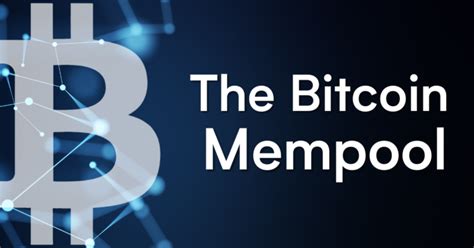Ethereum: 64 -bit mepool chain for a long time – preventing unconfirmed payments overload the network
As a Bitcoin and Ethereum developer, you have probably encountered problems with a large number of unconfirmed transactions being kept in the Bitcoin (BTC) or Ethereum (ETH) network. A common problem is when the transaction pool becomes too long, leading to slow processing times and possible delays in receiving confirmed payments.
In this article, we will delve into why a memory chain can become too long and explore ways to prevent such problems from occurring, specifically in the context of sending Bitcoin and Ethereum through the JSON-RPC API.
What is a memory chain?
A mepool is a data structure used by cryptocurrency exchanges such as Bitmex or Binance to manage and prioritize transactions. When multiple users try to send funds to the same wallet or exchange, transactions are grouped into a single “mepool” or pending transactions pool.
Why can a mepool chain become too long?
A memory chain can become very long when there is:
- Many unconfirmed transactions : If you have 24 unconfirmed payments sent from your account, it means that transactions are still being checked by the network.
2.
Consequences of a long chain of mepool
A long chain of mepool can lead to:
- Slow Transaction Processing Times : As more and more transactions are added to MEMPool, processing time increases, causing delays in receiving confirmed payments.
- Network congestion

: A large memory chain can overload the network capacity, leading to higher latency, lower transaction speed and possible interruptions.
How to prevent unconfirmed payments from overloading the network
To mitigate these problems and prevent unconfirmed transactions from supporting the network:
- Use a better lot strategy : Consider using a more efficient lot technique, such as lot or pool lot lot, which can reduce transaction processing times.
- Increase block time time : Activating longer block times (for example, 10 minutes) can help reduce the number of mepool transactions at any time.
- Optimize your JSON-RPC API Request Parameters : Adjust API request settings to reduce the number of non-confirmed transactions being sent:
* Use Include inspecent set asfalse, which will only include non -response transaction exits, reducing the amount of data being returned.
* Define maxbatch as a higher value (for example, 100) to limit the number of transactions in each lot.
- Use a more robust lot library : Use libraries such as
Eth-Batcheror Bitcoind-RPC`, which provide better lot features and can help reduce transaction processing times.
- Monitor Mempool Chain Performance : Keep an eye on the metrics of your MemPool chain to identify any bottlenecks or problems before they become a problem.
By implementing these strategies, you can prevent unconfirmed payments overload the Ethereum network and ensure the softer transaction processing times with your JSON-RPC API requests.
